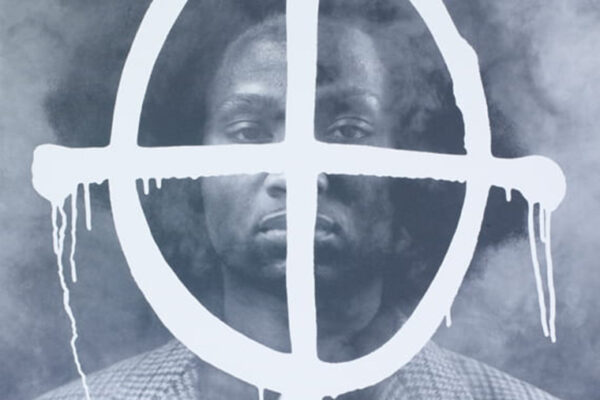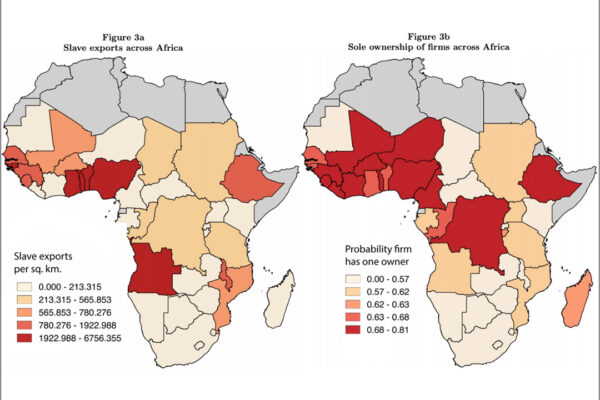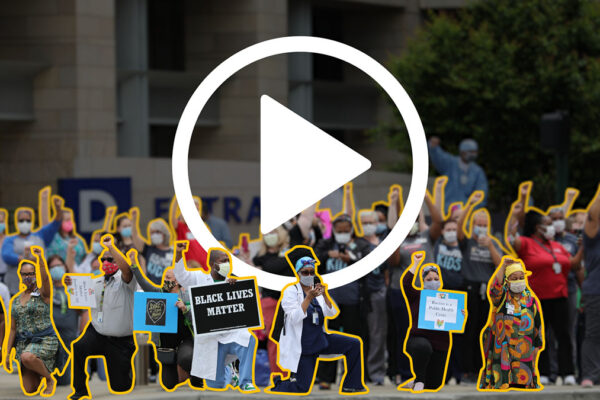Washington University in St. Louis in Louis has joined Universities Studying Slavery (USS), a consortium of 80 universities and colleges examining and addressing how their institutional histories are entangled with slavery and its legacy. The WashU initiative, based at the Center for the Study of Race, Ethnicity & Equity (CRE²), will support new research, classes and programs that leverage university collections and archives.
“If Washington University is to be truly in St. Louis, for St. Louis, we must take a hard look at our past,” Chancellor Andrew D. Martin said. “By joining Universities Studying Slavery, Washington University faculty, students and staff will gain a better understanding of our history and the many ways slavery and racism have impacted our campus and our relationship with the St. Louis community.”
Here, Geoff Ward, professor of African and African American studies in Arts & Sciences and the CRE2 faculty affiliate leading this effort, explains why the university joined the consortium, how it will engage all members of the community and why studying the past is important for Washington University’s future.
How did Washington University come to join Universities Studying Slavery? And what will our participation look like?
Last summer, Chancellor Martin invited groups of faculty to meet with him to discuss structural racism and how the university could bolster its engagement in issues of race, ethnicity and equity. Participation in Universities Studying Slavery emerged as a potentially powerful mechanism for drawing more of the campus community into this reckoning with structural racism.
Student engagement is a key priority. The project will create a rich platform for the cultivation of critical inquiry and collaborative research experiences spanning the humanities, social sciences, art and architecture, medicine and other fields, better preparing students for leadership in addressing the afterlives of slavery and other historic injustice.
Right now, there are a discrete number of places where these exposures and reflections occur, but USS offers a framework for a more broadly engaging and integrated examination of the politics of race, centering our own institution.
WashU’s participation in USS will manifest in a number of ways, including new and existing courses. Next fall, for instance, first-year students may enroll in the new Ampersand course “Rethinking WashU’s Relation to Enslavement: Past, Present, Future” (with Iver Bernstein, professor of history, and Carl Craver, professor of philosophy, both in Arts & Sciences). In my own courses on “Legacies of Racial Violence” and “Monumental Anti-racism,” there are modules on USS as a research and engagement initiative. Courses will facilitate faculty and student research. We also will engage faculty, students, staff, alumni and the larger community in other ways, such as lecture series, tours, exhibits and other activities. Participation will also manifest in ways that are less apparent but critical, such as support for the libraries to digitize and build collections related to the initiative.

Universities Studying Slavery was created by the University of Virginia which was built by enslaved people. Washington University, in contrast, was founded by abolitionist William Greenleaf Eliot. Why should we join the consortium?
The question belies the limits of our understanding of WashU’s relationship to slavery, beyond the recognition of Eliot’s abolitionism. The truth is we know very little about who physically built the early campuses of our university and how slavery relates to the financing and organization of the institution. Our research has already revealed entanglements. For example, the Danforth Campus, including the South 40, is built on former farmland where enslaved people were exploited, and numerous early benefactors and leaders of the university derived their wealth and power in part through the institution of slavery.
Joining the consortium aids our honest reassessment of this foundation story, providing an understanding of how are we implicated as a campus today by our inheritance of inequality rooted in histories of violence, and thus an improved basis for addressing this legacy more explicitly and deeply.
How will these efforts impact the broader St. Louis community?
Washington University’s relationship to slavery is bound up with that of St. Louis, the state of Missouri, the Mississippi River Valley and the nation. We know from a large body of humanities and social science research that this past remains present — that societies embody and reproduce histories of racialized violence — and there is hope that facing these truths will help to create a more just future. This initiative can contribute to our region’s reckoning through the insights of research and by activating our history in ways that facilitate productive encounters with difficult truths. I am hopeful our initiative will collaborate with other USS members in the greater St. Louis area, including Saint Louis University and Southern Illinois University Edwardsville, to deepen this contribution.
Through truth-telling and bearing witness, we can support the pillars of our institutional mission, including building stronger relationships with and for St. Louis. All of our units have relevant histories and opportunities for contribution. We believe this work of reckoning will help WashU develop stronger relationships of trust and cooperation across our persistent divides and contribute to addressing complex problems of race and justice.
For more information, visit WashU & Slavery.



Comments and respectful dialogue are encouraged, but content will be moderated. Please, no personal attacks, obscenity or profanity, selling of commercial products, or endorsements of political candidates or positions. We reserve the right to remove any inappropriate comments. We also cannot address individual medical concerns or provide medical advice in this forum.